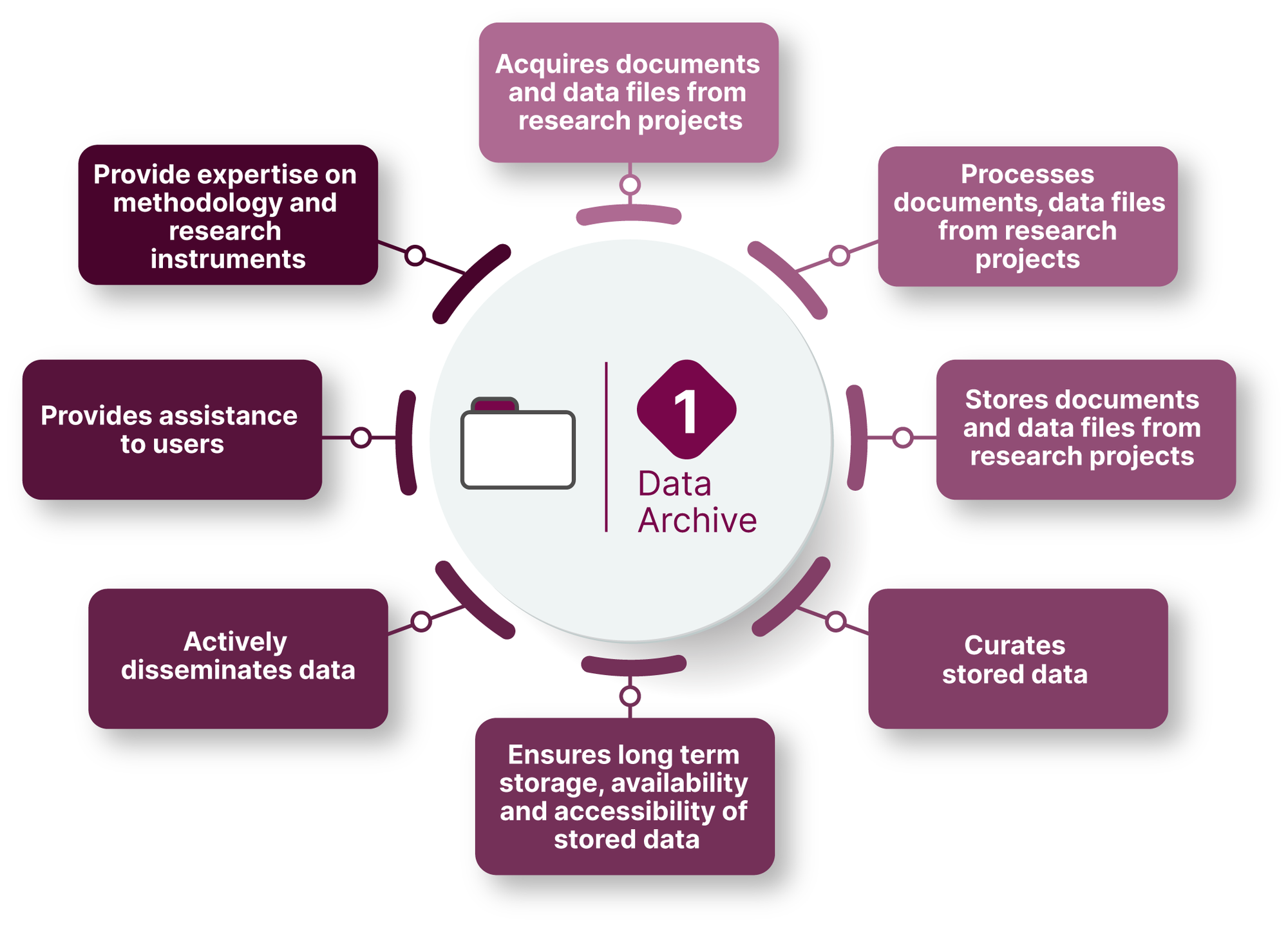1.1 What is an archive?

A data archive - more than just the storage of data
In a nutshell, a data archive provides all the possible support for sharing research data and making and keeping the data FAIR. A data archive is not just a storage place for the data. It provides services to the research community that require complex archiving activities.
As a data service provider, a data archive acquires, processes, documents and stores data files from research projects. It is responsible for the curation of deposited data and ensures that it is stored for the long term and remains available and accessible over time. A data archive disseminates data (i.e., makes them available), and provides help to its users. It also serves as a resource of information about methodology and research instruments.
"A data archive is a data service provider that carries out complex archiving activities, such as data curation, dissemination, and preservation."
The terms 'archive' and 'repository' are often used interchangeably. However, some define them as different services, with repositories being more simple data services that do not carry out all the complex archiving activities described above. Such repositories allow owners of the data to deposit datasets without any requirements regarding the quality of the data and without performing services such as curation and preservation. An example of such a repository is the general-purpose, open-access repository Zenodo. One way for users to assess the quality of a data archive and the services it delivers is to look at the archive’s certification status. You can read more about FAIR-enabling and trustworthy services in Chapter 5.
You can read more about the different types of data archives that are available for data producers to deposit in, in 'DMEG - Chapter 7 Discover' (CESSDA Training Team, 2017 - 2022).
Data archives’ mission:
The general mission of data archives is to enable sharing and re-use of existing scientific data and to facilitate teaching and learning in various branches of science - in the case of CESSDA archives: the social sciences.
"The mission of CESSDA is to provide a full scale sustainable research infrastructure enabling the research community to conduct high-quality research in the social sciences contributing to the production of effective solutions to the major challenges facing society today and to facilitate teaching and learning in the social sciences."
CESSDA archives have a joint mission to seek to increase the scientific excellence and efficacy of European research in the social sciences, as well as to expand easy access to (meta)data regardless of borders. CESSDA archives want to provide a research infrastructure to their researchers and join forces with other (national) data service providers.
Find out more about your archive
Here are some questions that you can ask yourself to learn more about your archive:
- What is the official mission of your data archive?
- What (data) services does your archive provide to the social-science community in your country?
- Is your archive a CESSDA member or a CESSDA partner?
- If yes, how does your archive benefit from being part of CESSDA?
- If not (yet), what could be the benefits of joining CESSDA? How could your archive become a part of this consortium?